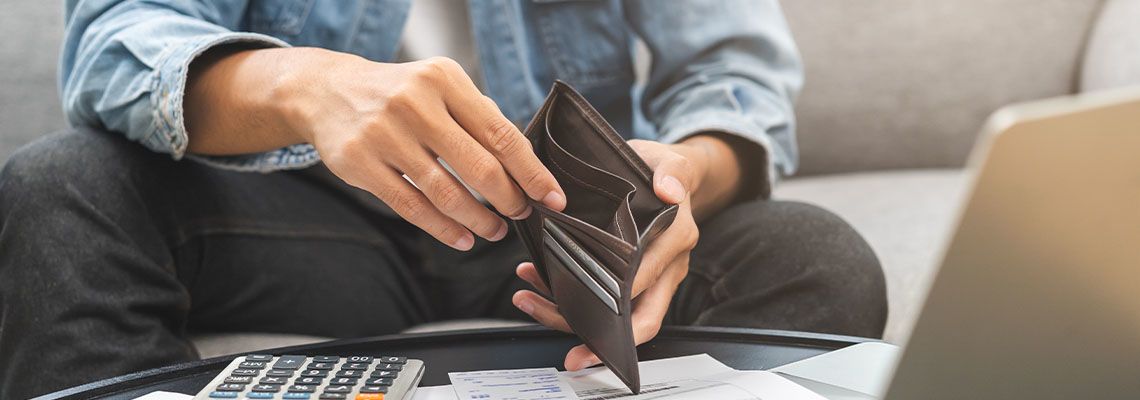
Bankruptcy and Student Loans
In the United States, individuals burdened with insurmountable debts may have the option to seek financial relief by filing for bankruptcy. However, student loan debts are not treated the same as other forms of consumer debt in bankruptcy proceedings.
Therefore, it's important to understand whether filing for bankruptcy can lead to the discharge of your student loans.
At Hoke Law Firm, we are committed to providing knowledgeable guidance and strong advocacy to help you deal with seeking relief from your student loan debts. Our experienced attorney can evaluate your unique financial situation and discuss your eligibility for student loan discharge when you file for bankruptcy.
Located in Baton Rouge, Louisiana, we serve clients throughout the state, including Lafayette and New Orleans.
How Does Student Loan Discharge Differ From Regular Bankruptcy?
Many consumers often struggle to repay their student loan debts. Generally, student loans are not automatically discharged in bankruptcy. However, depending on the details of your bankruptcy filing and your specific circumstances, you may be able to discharge all or part of your student loan debt in certain cases.
Chapter 7 Bankruptcy and Student Loans
Chapter 7 bankruptcy is designed to help consumers eliminate most of their general unsecured debts, such as medical bills, credit card debts, and personal loans, to gain a fresh financial start. A court-appointed trustee will liquidate your non-exempt assets and use the proceeds to pay your creditors.
However, student loan debts are not automatically discharged under Chapter 7 bankruptcy. Instead, you will need to file a petition to begin an adversary proceeding, which is a separate lawsuit within your bankruptcy case. This allows you to demonstrate to the court that repaying your student loans imposes an undue hardship, which could potentially qualify you for discharge.
Chapter 13 Bankruptcy and Student Loans
Chapter 13 bankruptcy offers a pathway to debt relief for those with a regular income who are overwhelmed by debts. Under this chapter, debtors can propose a repayment plan, typically lasting three to five years, to settle their liabilities, including student loans, using their future income.
Under Chapter 13, student loans are treated as non-priority unsecured debts, meaning you don’t have to pay off the entire loan through your repayment plan. However, interest may continue to accrue on the loan during this period. If your student loans fall into the category of dischargeable debts, they may be discharged once you complete your Chapter 13 repayment plan.
Grounds for Student Loan Discharge
It is a common misconception that student loans cannot be discharged in bankruptcy. Here are a few grounds for student loan discharge:
Undue Hardship
To qualify for student loan discharge through bankruptcy, you must prove that repayment would cause you undue hardship. When you submit a petition to discharge your student loan debts, the court will assess the following:
Your current ability to pay the student loan debt
Your future ability to pay the student loan debt
Whether you have made efforts to repay the debt
The value of your assets, property, savings, and household income
The Brunner Test
Under the Brunner Test, a court or judge may move to discharge your student loans, but only if you answer "yes" to the following questions:
Are you unable to maintain a minimal standard of living while repaying your student loans based on your current income and expenses?
Is your financial situation likely to persist?
Have you made a good-faith effort to repay the student loans?
The Totality of Circumstances Test
The totality of circumstance test is a method of analysis in which the court will make a decision to determine your eligibility for student loan discharge based on an examination of all the relevant factors and circumstances rather than only broad rules.
Our attorney at Hoke Law Firm can help you understand the potential consequences of ignoring your loans and help you determine your eligibility for discharge through bankruptcy.
Consequences for Ignoring Your Loans
Ignoring student loan payments or defaulting can have severe repercussions. Some common consequences include the following:
Damage to your credit score
Late fees, fines, and penalties
Wage garnishment
Negative marks on your credit report
Difficulty obtaining loans
Garnishment of Social Security benefits
Involvement of cosigners
Rather than facing these penalties, you should explore your options for debt relief, including bankruptcy. If you're overwhelmed with student loan debts, our seasoned attorney can discuss the benefits and drawbacks of filing for bankruptcy and help you explore your eligibility for discharge.
Understand How Your Student Loans Apply to Your Bankruptcy Case
In bankruptcy cases, student loan debts are treated differently from other unsecured debts. However, you may still be eligible for discharge if you can prove that repaying the debt imposes undue hardship on you and your ability to maintain a standard of living.
At Hoke Law Firm, we're dedicated to helping you understand student loan discharge. We will help you explore your available options and determine whether filing for Chapter 7 or Chapter 13 bankruptcy is right for discharging your student loan debts.
Experienced Counsel You Can Trust
Contact us at Hoke Law Firm today to schedule a free consultation with our trusted bankruptcy attorney. Our goal is to provide the experienced legal counsel and robust advocacy you need to help you make critical decisions regarding your student loans and financial standing.
Our firm proudly serves clients throughout Baton Rouge, Lafayette, New Orleans, and the state of Louisiana.
